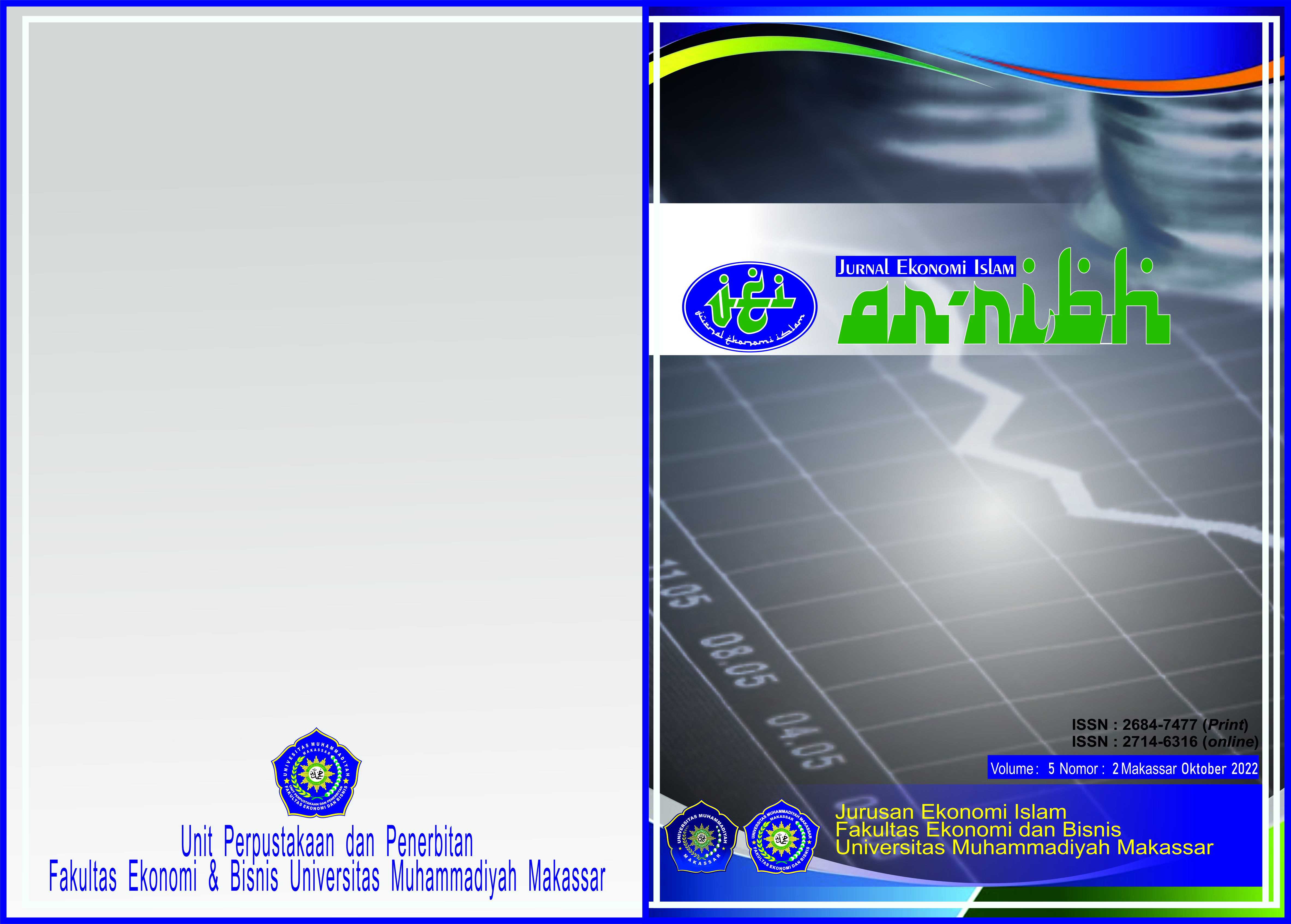The Concept of Ownership and Property in Islam
DOI: https://doi.org/10.26618/jei.v5i2.9195
Abstract
This study aims to determine how the concept of property ownership, the application of property in Islamic economics and to analyze Afzalur Rahman's thoughts on the concept of property ownership in Islamic economics. The method used by the author in this study is library research based on the problem formulation supported by data and data sources from a literature review. Based on the results of research on the concept of property ownership in Islamic economics, according to Afzalur Rahman, an Islamic economic system is comparable to economic principles that require an economic system that is in accordance with the Qur'an and As-Sunnah. Where Islam also wants everyone who has property in the form of goods or services obtained in a lawful way, both in the form of substances and how to get them, does not damage and damage human nature, nor does persecution and exploitation, the goal in the end is to fight for the needs of human life and seek the pleasures of the hereafter that are blessed by Allah SWT.References
Abu Zahrah, Muhamad. (1996). Al-Milkiyah wa Nazariyah al-Aqd al-Syari’ah alIslamiyyah. Kairo: Dar al-Fikr al-‘Araby.
Agus, Bustanuddin. (2006). Islam dan Ekonomi : Suatu Tinjauan Sosiologi Agama. Padang: Andalas University Press.
Syarifuddin, Amir. (2003). Garis-Garis Besar Fiqh. Bogor : Kencana.
Antonio, Muhammad Syafi’i. (2012). Bank Syari’ah dari Teori ke Praktek. Jakarta: Gema Insani.
Marsuni, N. S., Rohmatunnisa, I., Nirwani, N., Pontoh, G. T., & Mediaty, M. (2022). Analysis Of Accounting Information Systems (SIA) In Preventing Froud. SEIKO: Journal of Management & Business, 5(2), 94-102.
Akhmad, A., & Marsuni, N. S. (2019). Causality Relationship of Poverty, Unemployment Rate, and Economic Growth in South Sulawesi Province. Jurnal Ekonomi Balance, 15(2), 231-241.
Marsuni, N. S. (2019). PENGARUH PRAKTIK ISLAMIC CORPORATE SOCIAL RESPONSIBILTY (I-CSR) TERHADAP KINERJA KEUANGAN PADA BANK UMUM SYARIAH PERIODE 2014-2018.
Marsuni, N. S., & Ahmar, A. A. (2018). ANALYSIS OF INCOME LEVEL OF COCOA FARMERS IN SUPPORTING REGIONAL DEVELOPMENT IN IWOIMENDAA DISTRICT, KOLAKA REGENCY, SOUTHEAST SULAWESI PROVINCE. Jurnal Ekonomi Balance, 14(2), 247-252.
Marsuni, N. S., & Rismawati, R. (2018). INCOME AND COST ANALYSIS OF BUSINESS ACTIVITIES DEVELOPMENT AT THE BUSINESS DEVELOPMENT CENTER (P2B) STATE ISLAMIC UNIVERSITY OF MAKASSAR. Jurnal Ekonomi Balance, 14(1), 129-136.
Marsuni, N. S., & Yusuf, M. (2022). Concept of Financial Management in Islamic Perspective. INVOICE: JURNAL ILMU AKUNTANSI, 4(2), 346-352.
Asy’ari, M. (1992). Manusia Pembentuk Kebudayaan dalam Al-Qur'an. Yogyakarta: Lembaga Studi Filsafat Islam.
Az-zuhaili, Wahbah. (2011). Fikih Islam Wa Adillatuhu. Jakarta: Gema Insani & Darul Fikir
Chapra, M. Umer. (2000). Sistem Moneter Islam. Jakarta: Gema Insani Press.
Chaudhry, Muhammad Sharif. (2012). Sistem Ekonomi Islam, Prinsip Dasar. Jakarta: Kencana Prenada Media Group.
Departemen Agama RI. (2002). Al-Qur’an dan Terjemahannya. Surabaya: al-Hidayah
Fauz, Noor. (2012). Tapak Sabda (Sebuah Novel Filsafat). Yogyakarta: LKiS.
Ghazālī (al), Abū Hamīd. Ihya’ ‘Ulūm al-Dīn. Semarang: Thaha Putra, t.t.
Haritsi (al), Jaribah bin Ahmad. (2008). Fikih Ekonomi Umar bin al-Khattab. Jakarta: Khalifa.
Hendi, Suhendi. (2008). Fiqh Muamalah. Jakarta: PT RajaGrafindi Persada.
Hidayat, Mohamad. (2010). An Introduction To The Sharia Economic: Pengantar Ekonomi Syari’ah. Jakarta: Zikrul Hakim.
Kaaf (al), Abdullah Zakiy. (2002). Ekonomi dalam Perspektif Islam Bandung: CV Pustaka Setia.
Karim, Adiwarman Azwar. (2012). Ekonomi Mikro Islam. Jakarta: PT. Raja Grafindo Persada.
________. (2012). Sejarah Pemikiran Ekonomi Islam. Jakarta: PT. Raja Grafindo Persada.
Mardani. (2017). Hukum Bisnis Syariah. Jakarta: Prenada Media
Marthon. (2004). Said Sa’ad. Ekonomi Islam di Tengah Krisis Ekonomi Global. Jakarta: Zikrul Hakim.
















